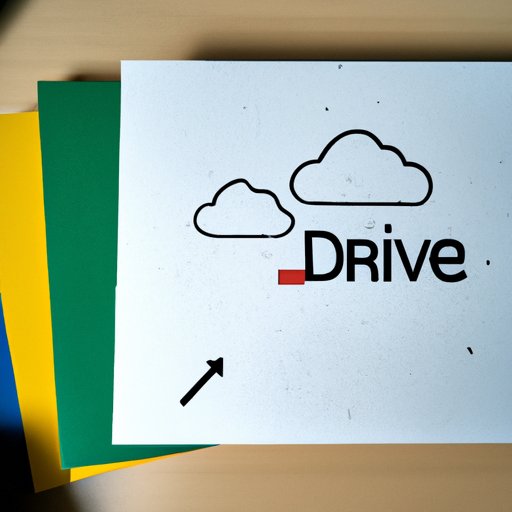
Introduction
Google Drive is a cloud-based storage and collaboration tool that allows anyone to store and share files securely online.
It has become an essential tool for many individuals, students, teachers, and businesses. However, despite its popularity, many people still struggle with using it.
Step-by-Step Guide
Using Google Drive is easy and straightforward. Here is a step-by-step guide to get you started:
Step 1: Creating an Account
The first step in using Google Drive is to create an account. If you already have a Google account, you can use that to access Drive.
If not, you will need to create a new Google account by visiting Google Sign Up and following the instructions provided.
Step 2: Accessing Google Drive
Once you have an account, open a new tab and go to Google Drive.
You can also access Google Drive by visiting the Google homepage, clicking on Apps, and then selecting Drive.
Step 3: Uploading Files
To upload files to Google Drive, click on the “New” button in the top-left corner of the screen and select “File upload” or “Folder upload”.
You can also drag and drop files directly into Google Drive.
Step 4: Organizing Your Files
Organizing your files in Google Drive is easy. You can create folders to keep your files in order, rename files, and move files between folders as necessary.
Step 5: Sharing Files
Sharing files in Google Drive is simple. Click on the file you want to share, click the “Share” button, and enter the email addresses of the people you want to share the file with.
Best Practices and Tips
Here are some best practices and tips for using Google Drive:
Collaboration
Google Drive makes it easy to collaborate with others on files. You can invite others to edit files by sharing them, and you can see changes made by others in real-time.
Use Google’s commenting feature to provide feedback and suggestions on files shared with you.
Organization
Use folders to keep files organized, and take advantage of the search feature to quickly find files you need.
You can also use Google’s built-in filters to sort files by date modified, name, file type, or owner.
Sharing
You can share files with anyone, even if they don’t have a Google account. Google Drive allows you to specify who can view, comment, or edit your files.
Be careful with your sharing settings and make sure you only share files with people who should have access to them.
Lesser-known features
Google Drive has many powerful features that are often overlooked:
- Integration with other Google apps, such as Docs, Sheets, and Slides
- Version control, which allows you to see previous versions of files and go back to them if necessary
- Offline access, which lets you access files even when you’re not connected to the internet
Case Studies
Here are some examples of how individuals and organizations have used Google Drive:
Education
Many schools and universities use Google Drive to share class materials and collaborate on assignments.
For example, a high school English teacher might use Google Drive to have students turn in essays electronically, allowing for easier grading and feedback.
Business
Small and large businesses alike use Google Drive to collaborate on documents, store files, and share information with clients and colleagues.
For example, a marketing agency might use Google Drive to share design mock-ups with clients and collect feedback in real-time.
Comparison to Alternatives
While there are many cloud storage and collaboration tools available, Google Drive stands out for a few reasons:
- It’s free to use, with generous storage allowances
- It seamlessly integrates with other Google apps, making it easy to collaborate on files
- It’s intuitive and easy to use, even for beginners
Video Tutorials
Check out these video tutorials to learn more about specific features of Google Drive:
Conclusion
In conclusion, Google Drive is a powerful and flexible tool that can help you collaborate, store, and share files more effectively.
Use the tips and best practices in this article to get the most out of Google Drive, and don’t forget to explore its many features and capabilities.





